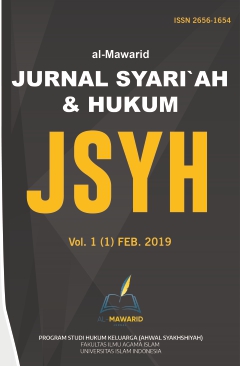Main Article Content
Abstract
The idea and spirit of kiai pesantren (Islamic boarding school teachers) in the struggle for independence was not much heard in the academic landscape in this country. The important role of kiai pesantren to fight for independence, as well as to spread the idea of nationalism, has not been published comprehensively. Research publications on pesantren, so far, only appear in communal, political, and dynamic aspects in the country. The narrative is built by some researchers, that traditional-faced pesantren has a unique subculture with rich cultural treasures. Meanwhile, the role of pesantren in the struggle for independence, only faintly heard. The values of the nationality and heroism of the kiai pesantren still need to be explored in depth. Kiai Bisri Mustofa is an important figure in the narrative of the struggle for Indonesian independence. This figure often reviewed as a lecturer, writer, and pesantren’s caretaker. His work in the struggle for independence, as well as his ideas in the framework of nationality need to be explored as a spirit of struggle. This article focuses on the following questions: What is the principle of Kiai Bisri Mustofa’s national struggle? What are Kiai Bisri Mustofa’s ideas about nationalism and patriotism in his books? What can we learn from the national struggle shown by Kiai Bisri Mustafa? By reviewing the biography of the struggle and interpreting the series of ideas in Al-Ibriz series, we can perceive the configuration of Kiai Bisri Mustofa’s ideas about the struggle for independence.
Keywords: Kiai Bisri Mustofa, pesantren, the struggle for independence, nationality, nationalism
Article Details
- Authors retain copyright and grant the journal right of first publication with the work simultaneously licensed under a Creative Commons Attribution License that allows others to share the work with an acknowledgement of the work's authorship and initial publication in this journal.
- Authors are able to enter into separate, additional contractual arrangements for the non-exclusive distribution of the journal's published version of the work (e.g., post it to an institutional repository or publish it in a book), with an acknowledgement of its initial publication in this journal.
- Authors are permitted and encouraged to post their work online (e.g., in institutional repositories or on their website) prior to and during the submission process, as it can lead to productive exchanges, as well as earlier and greater citation of published work.
